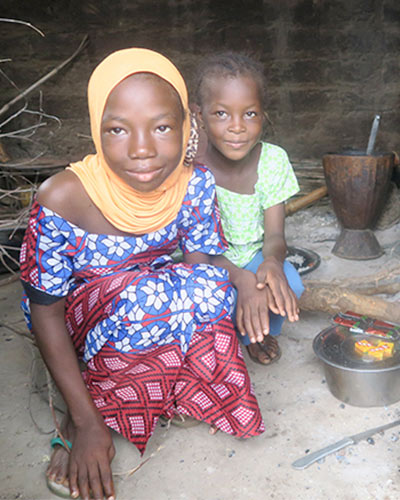September 29, 2017

Forty-seven years ago, Myron M. (“Mike”) Levine, MD, DTPH, the Simon and Bessie Grollman Distinguished Professor and Associate Dean for Global Health, Vaccinology and Infectious Disease, was one of few researchers doing human challenge studies. The University of Maryland typhoid human challenge model established by the late Professor Theodere E. Woodward ran from 1952 to 1974: Data collected contributed to the development of Ty21a, one of two typhoid vaccines currently licensed and recommended by the World Health Organization. In a Lancet commentary, Dr. Nicholas Feasey, Senior Clinical Lecturer, Liverpool School of Tropical Medicine and Professor Levine discuss the use of a typhoid human challenge model to accelerate development and use of a new typhoid vaccine.
The prevention and control of Salmonella enterica serovar Typhi (S. Typhi), the cause of typhoid fever, is a global health priority that affects nearly 12 million people each year. S. Typhi disproportionately impacts children and poor populations in regions with inadequate water quality and poor sanitation. The problem is expected to grow with increased multidrug resistance, urbanization, and climate change. There is growing interest in new typhoid conjugate vaccines (TCVs) that can be administered to children under two years of age who cannot be given the currently licensed typhoid vaccines.
A new study in the Lancet presents the first data on the efficacy of Typbar-TCV™, a Vi conjugate vaccine from Bharat Biotech International of Hyderabad, India. The evidence showing the efficacy of Typbar-TCV™ come from a new typhoid human challenge model, developed at Oxford University, which uses the same S. Typhi challenge strain as the original Maryland model. These efficacy data, combined with results of other clinical trials that established the ability of a single dose of the conjugate vaccine to stimulate high titers of Vi antibodies in older infants, children, and adults, bolster the growing evidence that support the use of TCVs in populations where typhoid is common. The Oxford results also highlight the need for trials to assess efficacy in typhoid endemic areas. The Typhoid Vaccine Acceleration Consortium (TyVAC), led by the Center for Vaccine Development (CVD) at the University of Maryland School of Medicine, in partnership with the Oxford Vaccine Group at the University of Oxford, and PATH, is expected to begin field trials in Nepal, Malawi, and Bangladesh in late 2017 or early 2018.
About the CVD
Since its inception in 1974, the CVD has worked to control vaccine-preventable diseases. The CVD has created and tested vaccines against cholera, typhoid fever, paratyphoid fever, non-typhoidal Salmonella disease, shigellosis (bacillary dysentery), Escherichia coli diarrhea, nosocomial pathogens, tularemia, influenza, and other infectious diseases.
Contact
Office of Public Affairs
655 West Baltimore Street
Bressler Research Building 14-002
Baltimore, Maryland 21201-1559
Contact Media Relations
(410) 706-5260

